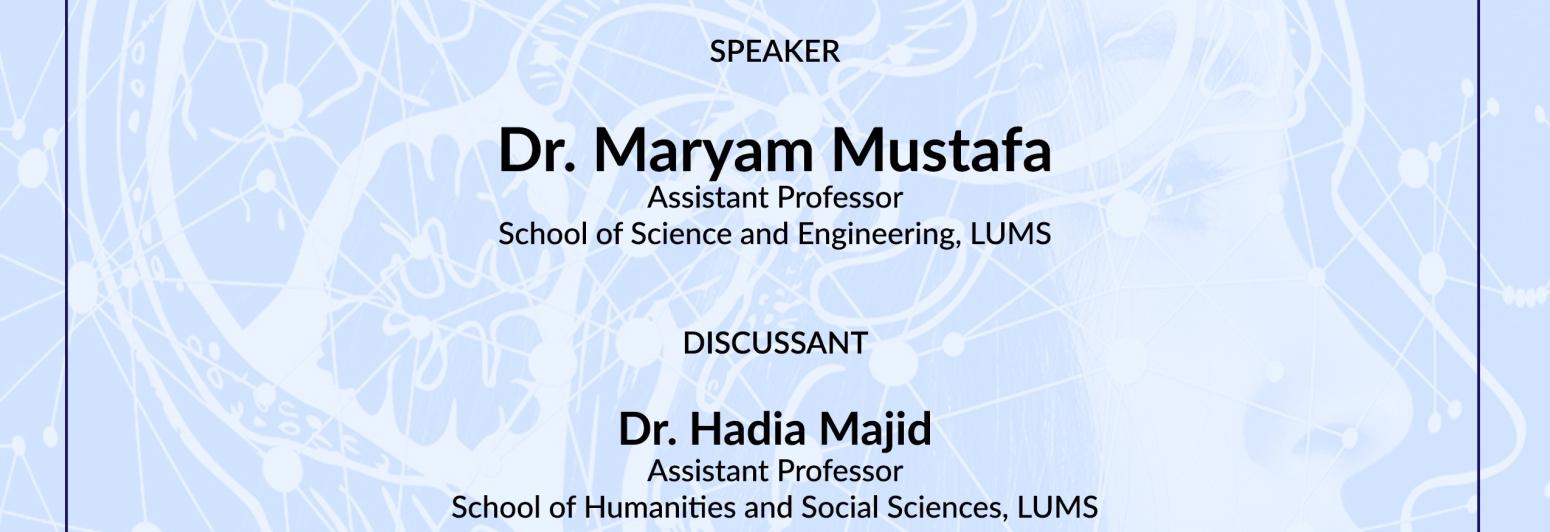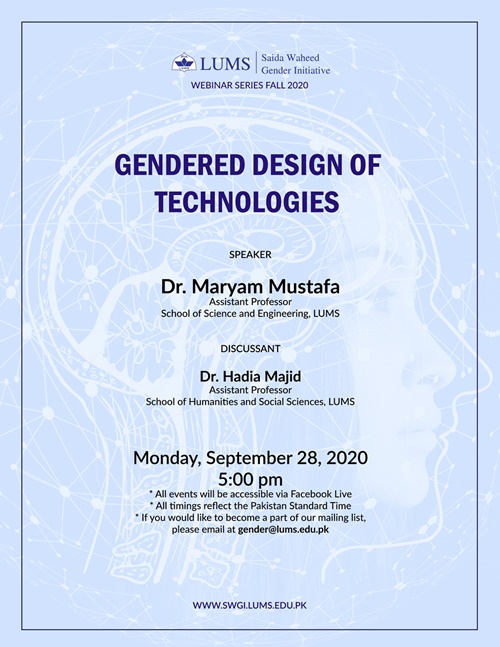
April 28, 2020
The Saida Waheed Gender Initiative’s 'Webinar Series 2020' will start on September 28, with a discussion on ‘Gendered Design of Technologies’.
Feminist thought is a natural ally to the design of technologies because of its central commitments to issues such as agency, fulfilment, identity, equity, empowerment, and social justice. This talk will engage feminist perspectives and approaches towards designing technologies for/with underserved communities. In particular, the talk will focus on designing for maternal and mental healthcare in Pakistan, designing for digital financial services targeted towards women, and how women in the Global South have leveraged technologies to navigate around restrictions on work and mobility outside the home and claim financial independence by setting up thriving businesses.
The discussion will be live streamed on Facebook here. Please ask questions in the comment section of the live stream.
About the speaker
Dr. Maryam Mustafa received her PhD in Computer Science from the Technical University of Braunschweig in 2015, Masters in Computer Science from Cornell University, and BSc (Hons) degree from LUMS with a major in Computer Science. Her research interests are in Human Computer Interaction (HCI), Mixed Realities and Information Communication Technologies for Development (ICT4D). My research engages feminist perspectives and approaches towards designing technologies for/with underserved communities.
Her work has appeared in premier HCI conferences, such as ACM CHI, and journals including Communications of the ACM (CACM). She has also been published in premier perceptual graphics journals including ACM Transactions on Applied Perception and IEEE Computer Graphics and Applications. Her work has been funded by the Gates Foundation and the United States National Science Foundation.
About the discussant
Dr. Hadia Majid, Assistant Professor, Department of Economics & Director, Saida Waheed Gender Initiative, LUMS, is a Fulbright Scholar and holds a PhD in Development Economics from The Ohio State University. Her research agenda considers the impact of monetary and public resource constraints on individual welfare in Pakistan.
Dr. Majid’s work includes cash transfer evaluations, public goods provisioning, human capital acquisition in the context of intra-household decision-making, and factors affecting women’s access to earned income. Her expertise lies in RCT, quasi-experimental, and quantitative driven fieldwork. She has also done qualitative work with low-literate, low-income women workers. Currently, she is focused on labour markets in Pakistan where she documents and explores the barriers to women’s labour supply and their access to decent, empowering work.




















